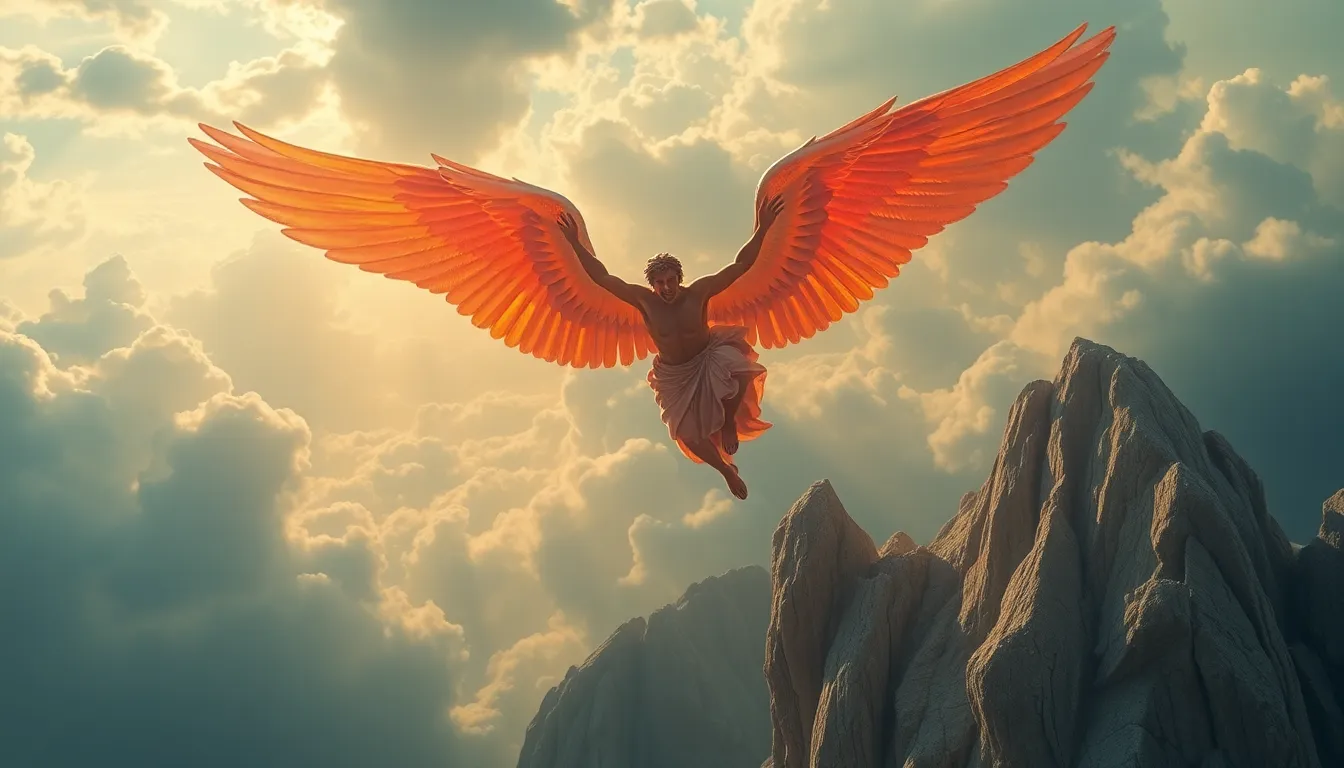What Icarus’s Fall Teaches Us About the Dangers of Overreaching
I. Introduction
The myth of Icarus is one of the most enduring tales from Greek mythology, encapsulating profound lessons about ambition and the consequences of overreaching. Icarus, the son of the ingenious craftsman Daedalus, is often remembered not just for his tragic demise but for what his story signifies in both ancient and modern contexts.
This ancient narrative serves as a poignant reminder of the delicate balance between aspiration and hubris. As we navigate a world filled with opportunities and challenges, Icarus’s fall offers a cautionary tale about the perils of unrestrained ambition. This article explores the lessons embedded in Icarus’s myth and their relevance in contemporary society.
II. The Legend of Icarus
The tale of Icarus is a poignant story of creativity, ambition, and failure. According to the myth, Daedalus, a master craftsman, was imprisoned in the Labyrinth he designed for King Minos of Crete. To escape, he fashioned two pairs of wings made of feathers and wax for himself and his son, Icarus. Before their flight, Daedalus cautioned Icarus not to fly too close to the sun, warning that the heat would melt the wax and cause him to fall.
Despite his father’s warnings, Icarus, intoxicated by the thrill of flight, soared higher and higher until the sun’s warmth melted the wax holding his wings together. He fell into the sea and drowned, a stark reminder of the consequences of ignoring one’s limitations.
Key characters in this myth include:
- Daedalus: The father and inventor, representing wisdom and caution.
- Icarus: The son, symbolizing youthful ambition and recklessness.
The symbolism of the wings and flight serves to illustrate the human desire for freedom and achievement, as well as the inherent risks of aspiring beyond one’s grasp.
III. The Concept of Overreaching
Overreaching can be defined as the act of attempting to achieve something beyond one’s abilities or resources. It often involves taking unnecessary risks in pursuit of success, power, or recognition. This concept is not new; it has appeared throughout history in various forms.
Examples of overreaching include:
- Historical figures who pursued conquests leading to their downfall, such as Napoleon Bonaparte.
- Contemporary corporate scandals where executives prioritized rapid growth over sustainable practices.
Psychologically, the line between ambition and hubris is thin. Ambition drives individuals to succeed and innovate, while hubris—an excessive pride or self-confidence—can lead to reckless decision-making and ultimate failure.
IV. Lessons from Icarus’s Ambition
The story of Icarus offers several essential lessons regarding ambition and the importance of self-awareness:
- The dangers of ignoring limitations: Icarus’s disregard for his father’s warnings illustrates how failing to recognize our limitations can lead to catastrophic outcomes.
- The importance of self-awareness and humility: Understanding one’s strengths and weaknesses is crucial in navigating the complexities of life and ambition.
- The value of gradual progress versus reckless ambition: Sustainable success often comes from steady, incremental advancements rather than impulsive leaps.
V. Overreaching in Modern Society
Today, overreaching manifests in various sectors, including business, technology, and politics. Case studies illustrate how individuals and organizations have fallen prey to the allure of excessive ambition:
- Business: Startups that scale too quickly without solid foundations often collapse when challenges arise.
- Technology: Tech giants that prioritize rapid innovation over ethical considerations face backlash and scrutiny.
- Politics: Leaders who overreach in their agendas can lead to instability and loss of public trust.
Cultural pressures also play a significant role in encouraging overreaching. The glorification of success stories often leads individuals to pursue unrealistic goals, neglecting the importance of balance and sustainability. The consequences of overreaching can be severe, resulting in burnout, failure, and loss of credibility.
VI. Finding Balance: Aspiration vs. Overreaching
To mitigate the risks associated with overreaching, individuals can adopt various strategies:
- Setting realistic goals: Establish clear, achievable objectives that account for personal limitations and external factors.
- The role of mentorship and guidance: Seeking advice from experienced individuals can provide valuable insights and help navigate complex challenges.
- Emphasizing resilience and adaptability: Developing the ability to adjust plans and strategies in response to changing circumstances promotes sustainable growth.
VII. The Relevance of Icarus’s Lesson Today
The lessons from Icarus’s fall are more relevant than ever. In a world characterized by rapid change and high competition, individuals often grapple with the balance between ambition and realistic expectations. Current events and trends reveal a persistent struggle with the consequences of overreaching, whether in personal endeavors or professional pursuits.
Encouraging a culture of mindful ambition—where aspirations are pursued with consideration for limitations—can help individuals and organizations achieve sustainable success. This approach fosters an environment where people can dream big while remaining grounded in reality.
VIII. Conclusion
In conclusion, the tale of Icarus serves as a timeless reminder of the dangers of overreaching. The lessons learned from his fall highlight the necessity of understanding and respecting our limits. As we pursue our dreams, it is vital to balance ambition with humility and self-awareness.
By embracing a responsible approach to ambition, we can work towards our goals sustainably and avoid the tragic fate of Icarus. Let us aspire to fly high, but with the wisdom to know when to soar and when to descend.




